
THIS SECTION IS FOR NEWS AND INTERESTING STORIES RELATED TO FOOD, NUTRITION AND FOOD PROCESSING. THEY ARE NOT NECESSARILY RELATED TO KOSHER BUT MAY BE OF INTEREST TO THE KOSHER CONSUMER, MANUFACTURER OR MASHGIACH.
February 3, 2026 from New York Post:
"Prices for name-brand snacks including Oreos, Triscuits, Chips Ahoy and Ritz crackers are poised to spike at supermarkets across New York City as the junk-food conglomerate that makes them shrinks distribution.
"A $5.99 package of Oreos and a $5.99 box of Ritz crackers could rise as much as $1 each by the end of the month, grocery executives said. That’s when Mondelez International — which also makes Clif Bars, Hall’s cough drops and Philadelphia cream cheese — will stop direct deliveries to 1,000 independent grocers across the city.
"In a Jan. 10 letter from its in-house counsel obtained by The Post, Mondelez told grocers that it will no longer make deliveries directly to their stores as it “moves to a new operating model.”
"Chains that will be affected include Foodtown, Key Food, Bravo and C-Town, according to the National Supermarket Association, which represents the stores. Gristedes stores will also see Mondelez deliveries stop, the company confirmed to The Post.
"Bodegas won’t be impacted since they already use independent distributors, as does the Morton Williams chain, industry executives said.
"Mondelez has long made daily deliveries to Big Apple grocery stores and is responsible for bringing the products to the shelves and deciding how they are displayed.
"The grocers will now have to rely on outside wholesalers who will simply drop off the product — and will be forced to charge more as a result, according to Eusebio. He explained that getting deliveries through middle men instead of straight from Mondelez — along with extra labor costs — will force stores to raise prices.
"Mondelez pinned the new policy on lack of parking and accessibility problems, Eusebio said, adding that the company did not mention congestion pricing. Most of the affected stores are in upper Manhattan and in the outer boroughs, outside of the congestion pricing zone.
"Some National Supermarket Association members in other states including Florida have also been told that Mondelez will no longer provide delivery services.
"n a Monday letter to politicos including Gov. Kathy Hochul and Mayor Zohran Mamdani, the supermarket association argued that Mondelez is violating federal fair trade law – specifically the Robinson-Patman Act – by cutting off delivery service to mom-and-pop retailers while continuing to service big chains like ShopRite, Stop & Shop and Wegmans."
February 3, 2026 - from New Hope Network
"A federal court judge has struck down a Texas law involving labeling requirements for plant-based and cultivated meat products.
"The United States District Court for the Western District of Texas ruled that Texas law SB664 was unenforceable as a violation of the First Amendment. The law, which went into effect on Sept. 1, 2023, required plant-based and cultured meat alternatives to include specific language on product packaging, such as 'analogue,' 'meatless,' 'plant-based,' 'made from plants,' 'cell-cultured,' 'lab-grown' or similar qualifiers, in a font size that is equal to or greater than the product name.
"he Good Food Institute (GFI), the Animal Legal Defense Fund (ALDF) and assorted legal professionals filed a lawsuit against the law in 2023 on behalf of Tofurky and the Plant Based Foods Association, arguing the law “imposes additional burdensome, impractical, and unclear disclosure requirements on plant-based meat producers that go beyond federal law,” according to the ALDF.
"The Texas ruling marks another successful challenge of state laws surrounding plant-based and cultivated meat labeling. Previously, laws in states such as Louisiana and Arkansas were passed that banned products not derived directly from animal sources from using terms such as 'meat,' 'burger,' 'beef' or 'poultry.' Federal court challenges found that both instances similarly were violations of manufacturers' First Amendment rights."
May 30, 2023 - from New Hope Network
"Texas Gov. Greg Abbott recently signed a bill requiring clear labeling of analogs of meat, poultry, seafood and eggs, as well as cultivated meat.
"The law, which takes effect Sept. 1, requires plant-based or fermented analogs of meat, poultry, seafood and eggs to have a prominent label with type at least the same size as the text around it labeling products as “analogue,” “meatless,” “plant-based,” “made from plants” or with similar clarifying language. A similar requirement in the state law for cultivated meat requires that any food product made from harvesting animal cells replicated to produce tissue have a similar label. The bill suggests the label say “cell-cultured,” “lab-grown” or similar language.
"What happens when Texas’s law takes effect on Sept. 1 is an open question. It seems many companies are already complying with the new law. Meat, dairy and egg analog companies already include labeling that specifically says their products are made from plants or another substance. These companies have said they want consumers to know their products are not meat, an attribute that is a selling point for some shoppers.
"As some of these laws started to take effect, advocacy groups including the Good Food Institute, legal organizations such as the Animal Legal Defense Fund and plant-based meat companies including Tofurky, have fought back in the courtroom. So far, litigation in Mississippi, Louisiana and Arkansas has yielded favorable decisions for meat alternative companies, while cases in Missouri and Oklahoma are pending.
"In the cases that have ended in decisions, courts have ruled the laws do not apply to any current company making meat analogs. The products on the market today have clear labeling, rulings have found. In Arkansas, the court found the law infringes on plant-based meat companies’ First Amendment rights “to convey meaningful, helpful information to consumers about the products they are purchasing.”

February 2, 2026 - Kosher certificate and explanatory letter in English is here
Kosher certificate and explanatory letter in Hebrew is here
Remilk New Milk (Hehalav Hehadash) which is made by fermenttion is pareve and lactose-free, but containing a milk allergen.
November 11, 2025 from Shemesh:
"Israeli food-tech startup Remilk has partnered with Gad Dairies to launch a new line of non-dairy milk products, The beverages are created using proteins that are identical to the ones found in real milk, but grown in a lab.
"These products will be available to restaurants and coffee shops within the next few weeks, and are expected to be available in grocery stores in January. So far, there are three varieties, all meant to be used with coffee and tea, as they have less protein than real milk and no casein. (Remilk's founder, Aviv Wolff, has stated that future non-dairy milk products can be formulated with identical protein content to real milk, but that this was file:///home/ajms/Documents/ajms's Documents/business/NEWS/W1783.news~not necessary for products meant to be added to beverages.) The three varieties are Barista, meant for making foamed milk, a basic version for coffee and tea, and a vanilla flavored variety that is fortified with vitamin E, magnesium, and folic acid, in addition to the vitamin D that is included in all three.
"Gad Dairies has stated that these products are kosher pareve, but it is unclear which kosher certification they will carry. They also have significantly less sugar than cow's milk. For the 66% of Israelis that keep kosher, and perhaps for diabetic Israelis as well, these products will add more dietary options to grocery shelves."
Times of Israel article on New No-animal milk has kosher bodies salivating. Here’s why you can have it with your steak is here
February 2, 2026 from World Israel News:
"Israel’s dairy industry is set to go on strike beginning Tuesday, halting the delivery of fresh milk as part of the industry’s protest against plans by the government to reform dairy production and reduce the cost of living.
"On Monday, the Israeli Cattle Breeders’ Association announced that milk producers will go on strike starting tomorrow, ramping up pressure on the coalition to nix the planned reform of the milk industry.
"The ICBA said it was “inundated” over the past 24 hours with appeals from dairy farmers calling for “extreme protest measures” to challenge the planned reform.
"The association’s leadership, the ICBA said, “has decided to heed these requests and is calling on all dairy farmers to join the halt in milk supply, in a last-ditch effort to awaken policymakers and warn against the abandonment of settlement and Israeli agriculture.”
"The proposed changes are being pushed by Finance Minister Bezalel Smotrich (Religious Zionist Party), and would, if enacted, reduce government controls on the dairy market, allowing for greater competition, with the goal of reducing prices.
"Quotas on the importation of dairy goods would be gradually eased, while at the same time, the government-mandated cost of milk would be cut, as the least efficient dairy farms – which currently raise the average cost of producing milk, thereby driving up the price set by the government – would be paid to shut down.
"Several hundred small dairy farms are expected to become financially unviable and close as a result of the reform, while the cost of milk is projected to fall anywhere from 8 to 10%, with significantly larger declines in the costs of various cheeses.
"Currently, the average cost of producing one liter of raw milk in Israel stands at 2.4 shekels – or one-third higher than the average rate in the European Union. Some dairy products, including various cheeses, are even more expensive in Israel relative to the EU, with prices ranging from 20 to 80% more in Israel, depending on the type of cheese.
"The dairy industry has vociferously opposed the reform, lobbying coalition lawmakers to block it from moving through the Knesset."
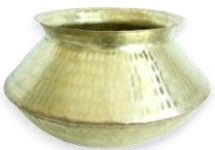
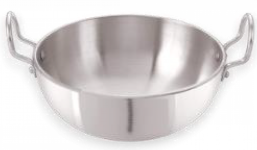
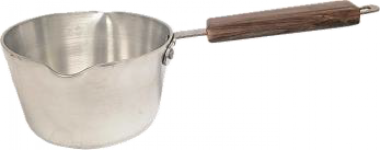
January 23, 2025 from the FDA:
IKM of San Jose, California is recalling the following cookware items because they may be contaminated with significant levels of lead (Pb) which may leach into food.
Products were distributed in California to grocery stores mainly in these cities: Sunnyvale, Santa Clara, Fremont, Hayward, Pittsburg, Milpitas, Tracy, Manteca, Dublin, El Cerrito, Richmond, Hercules, San Jose, Fresno, Pleasanton, Roseville and Sacramento
To identify these metal cookware items, begin by distinguishing them by their specific alloy and structural design. The A-cook Aluminum Kadai is a silver-toned, wok-style vessel characterized by its wide, curved basin and lacks a long handle, whereas the Aluminum Saucepan is easily recognized by its 9-inch diameter and the presence of a wooden handle attached to its silver aluminum body. The brass items are identifiable by their distinct golden hues: the Brass Tope resembles a standard stock pot with a bright, golden finish, while the 4-quart Pital Brass Pot features a more specialized deep body and a narrow mouth with a characteristic dull or matte golden appearance.
These are just pictures to give you an idea. The real product might look a little different.
Consumers who have purchased the recalled products are urged to return them to the place of purchase for a full refund. Consumers with questions may contact the company at 1-650-695- 9009. Our operation hours are from 10:00 from 17:00 PST Mon-Fri, excluding national holidays.
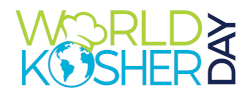
January 20, 2026 - from the Kosher Institute:
"World Kosher Day launches on February 1, 2026 as the first annual global celebration of kosher food and the professionals who uphold it. For generations, mashgichim, certification agencies, and kosher businesses have worked behind the scenes to ensure the integrity of kosher standards. World Kosher Day creates a moment for the kosher world to come together, recognize that work, and share the meaning behind the hechsher. Communities, agencies, restaurants, and educators around the world are invited to participate in their own way, through events, education, or simple awareness. Founded by the Kosher Institute of America, World Kosher Day celebrates the infrastructure that makes kosher possible. Learn more at worldkosherday.com."
January 19, 2026 - from JNS:
"The U.S. Department of Homeland Security issued an interim final rule removing a long-standing requirement that R-1 religious workers remain outside the United States for one year after reaching the maximum period of stay before returning in R-1 status.
"The R-1 visa is a temporary U.S. visa that allows foreign religious workers, including clergy and religious educators, to work for nonprofit religious organizations in the United States.
"The rule, titled Improving Continuity for Religious Organizations and Their Employees, took effect on Jan. 16, according to a notice in the Federal Register. It is a step meant to “minimize disruptions to the vital services that nonimmigrant religious workers provide to U.S. churches, mosques, synagogues and other religious organizations.”
"Agudath Israel of America also urged Congress to pass the bipartisan Religious Workforce Protection Act, which “would eliminate the need for individuals on an R-1 visa to leave the US at all while further strengthening protections for people of faith in the workforce."
January 18 2026 - from the Times of Israel:
"Krembo is just one of many food items that have become more expensive for consumers in Israel, a trend that was supercharged during the two years of war following the Hamas attack on October 7, 2023, and that has continued since, contributing to the already sky-high cost of living.
"The Strauss Group and other food manufactures have attributed recent price hikes to what they say are significant and ongoing increases in production costs, including for electricity, municipal property taxes, wages and raw materials.
"But critics say the problem is weak consumer protections that give producers practical carte blanche to keep raising prices.
"Behind the wave of rising living costs were Israel’s largest food manufacturers, Tnuva, Strauss, and Osem-Nestlé, alongside the two main importers, Diplomat and Schestowitz.
"Over the past three years, the cost of a shopping basket with 50 basic goods has increased by about 20%, or by about NIS 250 ($80) a month for a family with two kids, according to Strum’s IEP, an independent research institute.
"Together with housing costs, steep food prices have been a main factor pushing families into deeper economic hardship. According to aid organization Latet, nearly 27% of Israeli families faced food insecurity in 2025, up from 21% a year earlier.
"The organization found that a family of four needed to spend NIS 14,139 ($4,480) a month in 2025 to meet bare minimum needs, including NIS 3,797 ($1,190) on food alone, up from NIS 12,938 per month ($4,100) in 2023, of which NIS 3,496 ($1,107) went to food. A survey by the group found that the high costs were forcing many to make ends meet by purchasing less food.
"A study conducted by Lobby 99 found that food suppliers and manufacturers hiked prices by an average of 10.1% since October 2023, led by Strauss which raised prices by almost 14%, followed by Tnuva at over 12%, and Osem-Nestlé at 13%.
"The war has been halted since October 2025, but there remain concerns that fighting could resume in Gaza, against the Hezbollah terror group in Lebanon, or against Iran.
"At the same time, inflation has been easing, and the shekel has been strengthening, hitting a four-year high against the dollar, which is making imports of raw materials cheaper. Independently of Israel, the prices of many raw materials, such as rice, sugar and cocoa, have been falling around the world.
"Yet local food prices have continued to go up, spurring State Comptroller Matanyahu Englman to urge lawmakers to do a better job in tackling the rising cost of living while criticizing the government for neglecting the matter during the war.
"Among the main supermarket chains, the shopping cart at Shufersal increased by almost 11% between October 2023 and December 2025, at Victory by 9.1%, at Rami Levy by 8.7%, at Yochananof by 7.4%, and at Osher Ad by 5%, according to the study by Lobby 99, which crowdfunds to lobby the government and the Knesset on the public’s behalf. While the hike for Carrefour Israel (formerly Mega-Yeinot Bitan) was even higher, those numbers were skewed by the fact that the chain was only entering the market in 2023.
"A comparison of cost of living in developed countries by the Organization for Economic Co-operation and Development lists Israel as the fourth most expensive place to live.
"When it comes to the food sector, prices are about 51% higher compared to EU member countries and 37% higher than among OECD countries, according to Israel’s state comptroller. For example, whole wheat bread was found to be 82% more expensive in Israel than in the US, England, New Zealand, and Spain, according to the report.
"Critics say the concentration of the market in the hands of a few major companies has dampened competition, meaning there is no force at play to drive down prices.
"In November 2024, a year into the war, Shufersal reported that it had more than quadrupled its third-quarter net profits from a year earlier, as the country’s largest supermarket chain benefited from price increases and strong demand for groceries. In the third quarter of 2025, net profits remained just as high."
"Strum believes that Israel can bring down the cost of living by 15% in the next two years if the government breaks up monopolies to create a competitive and open marketplace similar to the steps the government took in the telecom and cellular industry. "
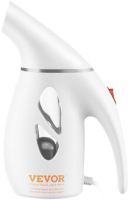
January 20, 2026 from the Government of Canada:
This recall involves VEVOR garment steamer model FCL-H09 and ES-H10.
Issue: The garment steamer can leak or spit hot water during use, posing a risk of serious burn injury to users and bystanders. The water tank cap can also leak or detach during use, exposing users to hot water.
Consumers should immediately stop using the recalled steamer and contact the company for instructions on how to obtain a refund. For more information, consumers can contact VEVOR by email at recalling@vevor.com.
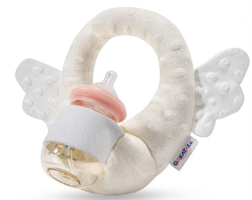
January 15, 2026 from the CPSC :
Self-Feeding Pillows are hazardous because it holds the bottle at an unsafe angle while keeping it fixed in place so the infant cannot pull away. This can lead to aspiration of milk or formula, posing a risk of suffocation.
Consumer Contact: Greatale by email at greatale-recall@outlook.com.
Description: This recall involves Greatale self-feeding pillows. The recalled self-feeding pillows are made of stuffed fabric and have an elastic sleeve to hold a bottle in front of an infant’s face. They were sold in white with angel wing shaped decorations. “Greatale” is on a label sewn into the seam of the pillow.
Remedy: Consumers should immediately stop using the recalled self-feeding pillows and contact Greatale for a full refund. Consumers will be instructed to cut the self-feeding pillow with scissors and submit a photo of the destroyed recalled product, including the product’s tag, to greatale-recall@outlook.com. If the product’s tag was previously removed, consumers can demonstrate eligibility by providing their Amazon proof of purchase in the email.
old Online At: Amazon.com from September 2024 through July 2025 for between $10 and $20.
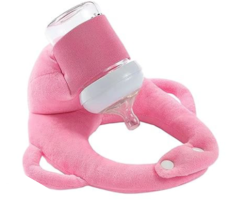
January 15, 2026 from the CPSC :
The U.S. Consumer Product Safety Commission (CPSC) is warning consumers to immediately stop using Miocololy self-feeding pillows because they hold a bottle at an unsafe angle while keeping it fixed in place so the infant cannot pull away. This can lead to aspiration of milk or formula, posing a risk of suffocation.
The self-feeding pillows were imported and sold by Miocololy-US, of China. About 2,380 self-feeding pillows were sold online at Amazon.com from October 2024 through November 2025 for between $15 and $25. Miocololy-US has not agreed to recall the self-feeding pillows or offer a remedy to consumers.
The self-feeding pillows are made of stuffed fabric and have an elastic sleeve to hold a bottle in front of an infant’s face. They were sold in pink and gray and may have been available in other colors.
Sold At: The self-feeding pillows were sold online at Amazon.com from October 2024 through November 2025 for between $15 and $25.
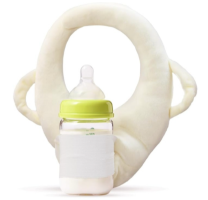
January 15, 2026 from the CPSC
The U.S. Consumer Product Safety Commission (CPSC) is warning consumers to immediately stop using Yiiektily self-feeding pillows because they hold a bottle at an unsafe angle while keeping it fixed in place so the infant cannot pull away. This can lead to aspiration of milk or formula, posing a risk of suffocation.
The self-feeding pillows were manufactured by Shenzhenshibeichenghangkeijiyouxiangongsi and sold by Yiiektily on Amazon.com. About 4,400 self-feeding pillows were sold from April 2024 to July 2025 for between $12 and $19. Yiiektily has not responded to CPSC’s request to recall the self-feeding pillows and offer a remedy to consumers.
Sold At: The self-feeding pillows were sold by Yiiektily on Amazon.com from April 2024 to July 2025 for between $12 and $19.
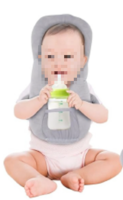
January 15, 2026 from the CPSC
he U.S. Consumer Product Safety Commission (CPSC) is warning consumers to immediately stop using Ourkiss self-feeding pillows because they hold the bottle at an unsafe angle while keeping it fixed in place so the infant cannot pull away. This can lead to aspiration of milk or formula, posing a risk of suffocation.
The self-feeding pillows were manufactured by Shenzhenhaipengyuntudianzishangwuyouxiangongsi and sold on Amazon.com by Ourkiss. About 370 self-feeding pillows were sold from June 2024 to July 2025 for between $14 and $18. Ourkiss has not responded to CPSC’s request to recall the self-feeding pillows and offer a remedy to consumers.
The self-feeding pillows are made of stuffed fabric, with arms that wrap around the infant’s neck and attach to a pillow with a hook and loop fastener on each side. An elasticized mesh pocket holds the bottle at an angle in front of the infant’s face. They were sold in gray and may have been available in other colors.
| The information posted is from secondary sources. We cannot take responsibility for the accuracy of the information. |
| Comments to webmaster@kashrut.com
© Copyright 2026 Scharf Associates |
|
|||||||||||